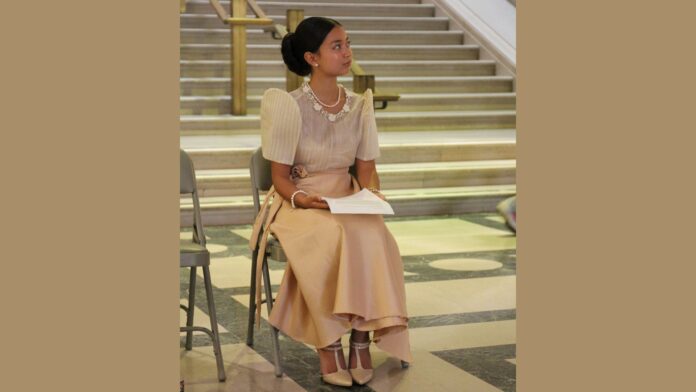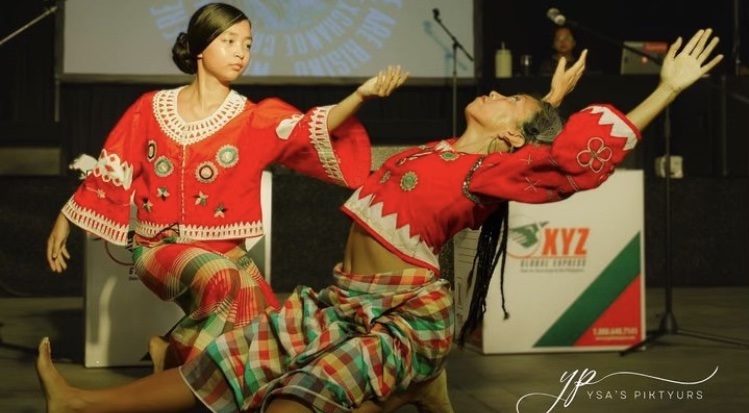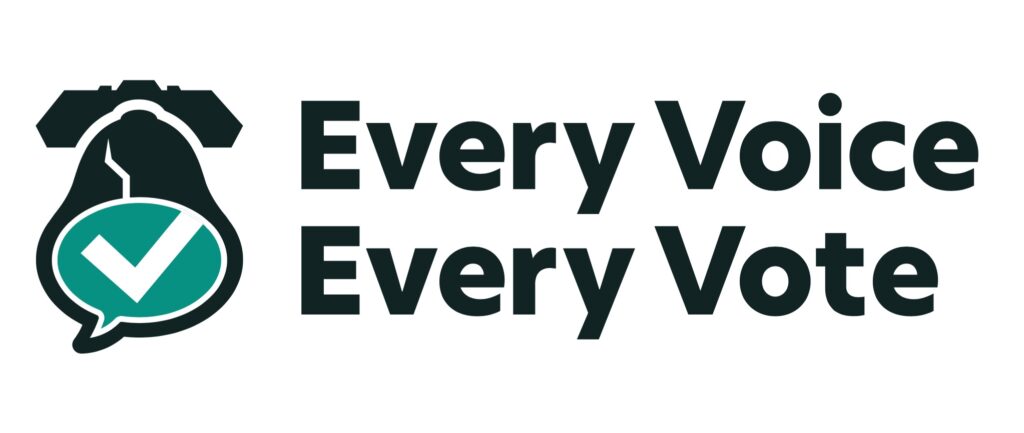
“A lot of the writing I do is activism,” said Malaya Ulan, a 16-year-old high school student who was recently named Philadelphia’s youth poet laureate for 2024-2025.
In “Deeply Rooted” — an original poem she read at the announcement ceremony, Ulan used a buried kamote (sweet potato) as a metaphor for the unseen stories of Black and Brown people. The metaphor extends, with roots reaching into the soil to find healing and nutrients and replenishment despite the chaos of the political climate in the world above.
“Held by the life that stirs in the soil, she finds moments of rest so she can rise up from the ground and finally give again,” Ulan recited at the ceremony.
Listeners can call Philadelphia’s Healing Verse Poetry Line (1-855-POEM-RX2) — a poetry hotline and mental health resource — to hear a poem she wrote. It’ll be featured until Sept. 29. She said she hopes the poem reminds listeners to find care before rushing to give of themselves.
Ulan, who was introduced to poetry during school and had already published a chapbook by the end of her middle school years, used the modality as a creative outlet when she was bullied.
She has written about funding cuts to the school district and other justice issues. She recently participated in a student contingency who spoke at the United Nations about the impacts of gun violence.
“I write about things to put forth our message as youth — whatever needs to be talked about,” she said, underlining that she hopes to bring attention to the conversations young people are having about the world.
Ulan will participate in a variety of readings and events as the youth poet laureate. She’ll also be able to pursue a special project of her choosing — and she’s still trying to decide what that will be.
One of her ideas is to create a collective chapbook that makes space for various youth to share their work — including different forms of writing and visual art.
She said she might also focus on responding to the proposed 76 Place arena — a Chinatown project some residents oppose due to its impact on the neighborhood. But Mayor Cherelle Parker recently announced that she’s proposing a deal that “must” be passed by City Council.
“As an Asian American, I feel like a lot of our communities are overlooked as if they’re less important. They think they can just destroy communities like that,” she said. “Chinatown is for housing, for schools, for families, for businesses. It’s a place where people can go and connect to their culture. It’s a safe space.”
Some of Ulan’s topics of interest also come from her studies. For instance, she’s taking an environmental chemistry class in school, which is informing her perspectives about climate change and global warming.
Ulan, a multidisciplinary artist whose work often focuses on themes of identity and her experiences as a first generation Filipino-American, has produced a film about the experiences of first-generation immigrants. She also paints and often collaborates with her mother, a dancer, who introduced her to expressive movement as a young person.
Together, they’re preparing for a performance that explores the connection between United States colonialism with its effects on the Philippines and Puerto Rico. They’re also flying out to Houston for a piece that weaves the Mexican and Filipino cultures.
“I’ve been doing that kind of work with my mom since I was young,” Ulan said. “I feel like that’s how I’ve been introduced into activism work and wanting to share my voice and perspectives in terms of creating change.”

Ulan views her mom, Annielille (Anito) Gavinocan, as her main mentor right now. Although Gavinocan is not a poet, she’s sought opportunities for her daughter — introducing her to the poetry scene and to mentors, including performing artist Ursula Rucker who she knew from a previous project.
Ulan, who is bisexual, has also had the opportunity to work with Gabriel Ramirez — a queer, Afro-Caribbean poet — who mentored her for a performance with the Asian Arts Initiative. Under the youth poet laureate program, she’ll be mentored by Kai Davis, a Black, queer artist who is the city’s poet laureate.
“I feel like my queer identity hasn’t really shown up in my work before. That is something I’m thinking about,” Ulan said. “I am queer, and that’s just part of my identity but hasn’t been part of my art — so I don’t know if that’s gonna make its way in there this year. It might.”
“I want to take the year to really develop my poetry and writing style and learn from others,” she added. “And also to just share.”
Ulan is interested in leading workshops that help others learn to create choreo poems — which incorporate movement into spoken-word performances.
In addition to exploring these wise and mature sides of herself, Ulan is just a normal kid who enjoys hanging out with her friends and playing around with an early 2000s camcorder — which she uses to document moments of joy and playfulness.
“It makes me think of memories,” she said about using retro tech. “I just like making little videos to look back at and be like, ‘Oh, this is great.’”

